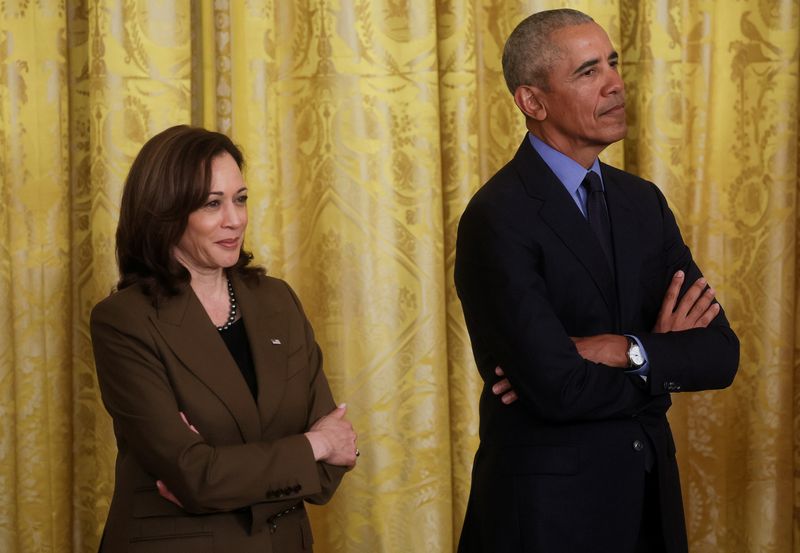In a significant political rally, former President Barack Obama is set to campaign on behalf of Vice President Kamala Harris in Pittsburgh, focusing on energizing young voters for the upcoming November 5 election. With his presidency behind him since 2017, Obama remains a prominent figure within the Democratic Party and has consistently expressed his support for Harris as she heads the Democratic ticket. This rally comes against the backdrop of a competitive election landscape where Harris is grappling with challenges from former President Donald Trump. Obama’s influence and popularity within party circles position him as a vital asset in Harris’s campaign efforts.
The rally will be held at the University of Pittsburgh, marking the first in a series of events Obama plans to attend in key battleground states. His presence is expected to galvanize supporter enthusiasm, particularly among younger demographics that may feel detached from the electoral process. According to Eric Schultz, an advisor to Obama, the former president aims to highlight the exceptional qualifications of Harris and her running mate, Minnesota Governor Tim Walz, emphasizing their capability to lead the nation during a critical period. His message will likely encompass the essential motivation needed to avoid a return to Trump’s presidency, which he frames as a risky scenario.
Obama’s advocacy for Harris aligns closely with his long-standing association with her; she was an early supporter of his presidential aspirations. This relationship has evolved into a noteworthy political alliance that saw Obama providing strategic guidance to Harris behind the scenes. His encouragement to her to attract talented individuals to her campaign signifies a commitment to her success. Furthermore, Michelle Obama’s previous speeches at the Democratic National Convention, alongside her support for Harris, reinforce the positive momentum Harris seeks to build as the election approaches.
The political landscape is tense, with Harris and Trump locked in a closely contested race. The outcome in Pennsylvania, where the rally is taking place, could hold significant implications for the overall election results. As the parties prepare for the election, the stakes are palpably high, and support from established party leaders like Obama is crucial for motivating voters and solidifying party unity in a challenging electoral environment. Harris’s team recognizes that strong on-the-ground support, particularly from influential figures like Obama, could make a difference in securing key votes.
Throughout his time on the campaign trail, Obama intends to invoke the importance of not only participating in democratic processes but also understanding the implications of political choices. By warning of the potential consequences of a Trump presidency, he seeks to steer voters towards actively engaging with Harris’s campaign narrative. The former president’s ability to resonate with voters will be paramount as Harris navigates a political climate fraught with skepticism and division. His historical context and ability to connect with various demographics present a powerful tool for Harris’s outreach efforts.
In the broader context, Obama’s return to the political stage underscores the ongoing influence of past party leaders in shaping electoral outcomes. As younger voters, who may feel disillusioned with the political process, gather under the banner of the Democratic Party, Obama’s message is pivotal. By instilling confidence in Harris’s leadership qualities and rallying for collective action, he aims to not only mobilize support but also create a sense of urgency around the need to safeguard democratic values against the looming threat of a Trump resurgence. Overall, Obama’s involvement represents a concerted effort to empower Harris’s candidacy by drawing on his enduring appeal to the party’s base and the broader electorate.

